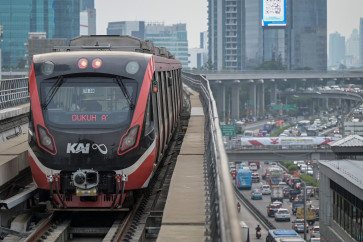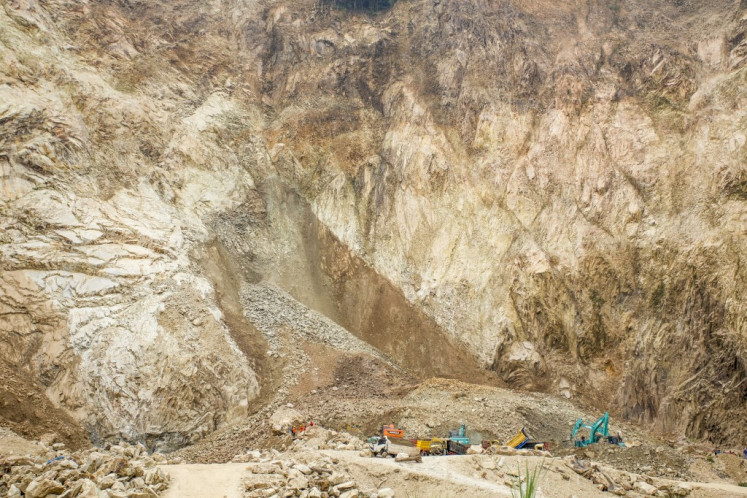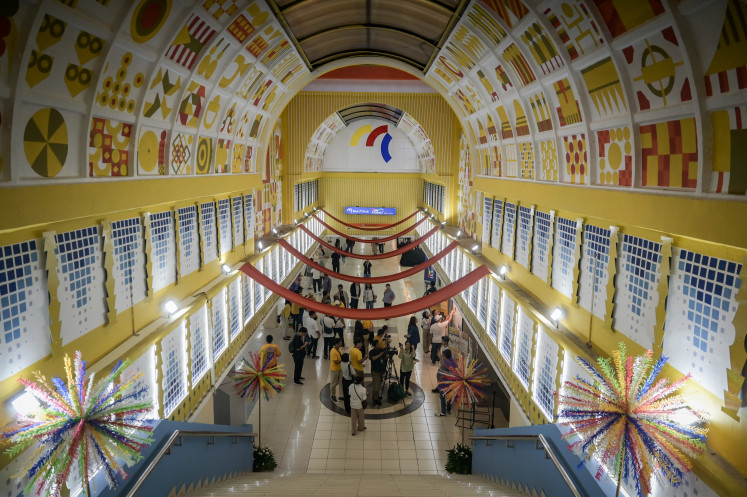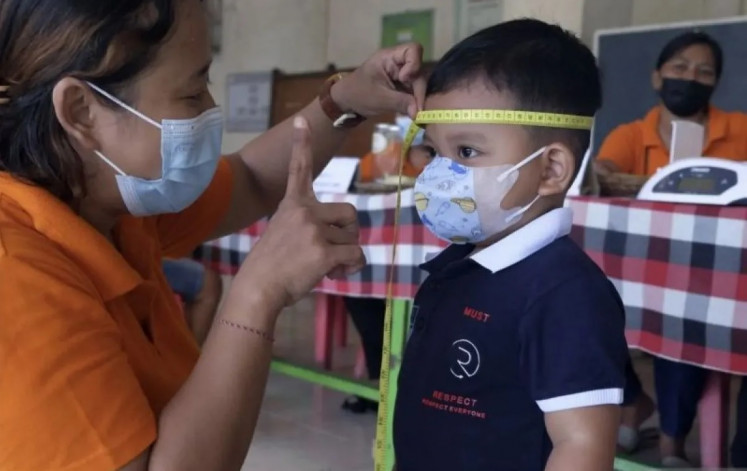Steel imports inevitable for Indonesia
Like it or not, Indonesia may still have to rely on imports to meet its rapidly increasing domestic steel consumption needs in coming decades if the government is unable to boost the national production capacity and develop new steel clusters
Change text size
Gift Premium Articles
to Anyone

L
ike it or not, Indonesia may still have to rely on imports to meet its rapidly increasing domestic steel consumption needs in coming decades if the government is unable to boost the national production capacity and develop new steel clusters.
Indonesia imported 6.43 million tons of steel last year, equating to 48 percent of the national steel demand, according to the Indonesian Iron and Steel Industry Association (IISIA).
This figure was slightly lower compared to the steel imports of 6.85 million tons in 2016 and the 6.49 million tons imported in 2015. However, the figure still raises concerns as the country remains one of the world’s top five steel importers each year.
“Ideally, the import portion should be no more than 30 percent of national demand. Given the current situation, we can see there is a supply-demand imbalance in the country’s steel market,” IISIA international relations director Purwono Widodo said at a discussion on Wednesday.
Meanwhile, IISIA has projected Indonesia’s annual steel consumption to gradually increase from 13.4 million tons last year to 23 million tons in 2025 and 45 million tons in 2035.
To reduce the country’s dependence on imports, the Industry Ministry has thrown its full support behind the development of three steel industry clusters with a total investment value of at least US$14.89 billion. These clusters will be located in Cilegon, Banten; Batulicin in South Kalimantan and Morowali in Central Sulawesi.
Industry Minister Airlangga Hartarto previously said the three clusters would complement each other and be able to cater to domestic demand by supplying high quality steel products.
State-owned steel maker PT Krakatau Steel is teaming up with South Korean steel giant Posco to jointly develop the Cilegon steel complex, which is expected to see its production capacity increase from the current level of 4.5 million tons to 10 million tons of carbon steel a year by 2025.
Meanwhile, China’s Shenwu Technology Group and local firm PT Gunung Garuda will develop the Batulicin steel cluster that will have a production capacity of 3 million tons of carbon steel.
In addition, China’s Shanghai Decent Investment Group and local firm PT Bintangdelapan Investama (BDI) will jointly develop the Indonesia Morowali Industrial Park (IMIP).
By 2019, IMIP expects to have an annual production capacity of 2.5 million tons of hot rolled coil (HRC), 500,000 tons of cold rolled coil (CRC) and 3.5 million tons of carbon steel.
Nonetheless, IISIA’s Purwono said the development of these three clusters would still not be enough for Indonesia to achieve steel self-sufficiency.
He said Indonesia would need to develop new steel clusters in the 2030-2035 period.
One of the reasons behind this problem is the low utilization level of the national steel production capacity, which is partly triggered by the relatively high industrial gas prices in Indonesia compared to its regional peers.
The country’s annual steel production capacity stood at 14.04 million tons as of 2017, but the utilization was only half of the figure.
IISIA says steel industry players still have to pay around US$6 to $7.3 per million British thermal units (mmbtu) for gas used in their operations, higher than the rates of around $4.64 to $5.68 in Malaysia and $3.6 to $5.36 in Vietnam.
This is despite the Energy and Mineral Resources Ministry’s policy since early 2017 to lower the prices of gas used in the petrochemical, fertilizer and steel industries by a maximum of $2 per 1 mmbtu if they reach more than $6 per mmbtu.
Airlangga has also previously admitted that the price cut policy has yet to be implemented effectively in certain regions in the country, including in Medan, even though energy costs are crucial to determining the competitiveness of the country’s industrial players.









